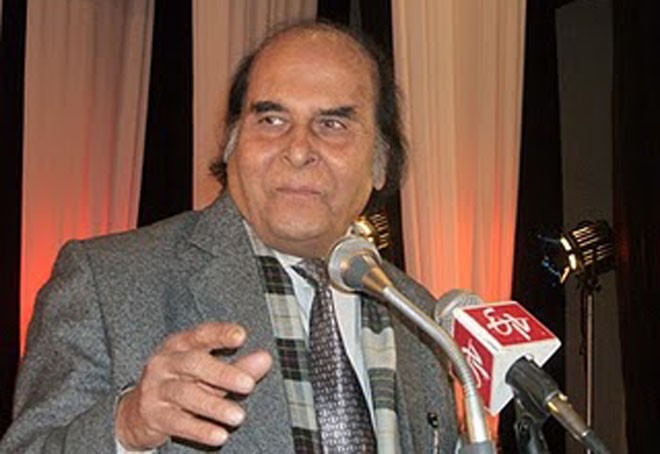
A poet, broadcaster, editor and a well-read critic of all mediums of art, Zubair Rizvi will be sorely missed

With the death of Zubair Rizvi, the Urdu world has lost a multi-faceted literary figure. As a poet, broadcaster, editor and a well-read critic of all mediums of art, he will be sorely missed not only in India alone but in Pakistan where he was a known name courtesy his outstanding literary journal Zehn-e-Jadeed. Apart from covering Urdu literature, it contained articles on art, film, drama and other socio-political issues of the day.
Born in Amroha UP in 1935, Zubair Rizvi was educated at Hyderbad Deccan as well as Delhi. After trying his hands at a few odd jobs, he landed in All India Radio and thus started his illustrious career as a broadcaster that suited him immensely as he had a lilting voice. This voice he used to recite his poetry in various mushairas that he attended in various cities as a budding poet.
It was in these literary gatherings that he rubbed shoulders with heavyweights like Josh Malihabadi, Firaq Gorakhpuri etc. His outstanding memoirs Gardish-e-Paa (Aaj Karachi, 2001) is a candid and frank testimony of what he saw and underwent in those early years.
In 1991, he started his literary journal Zehn-e-Jadeed which quickly became one of the most prestigious and widely read literary documents. As earlier said, its distinguishing feature was the brilliant coverage of whatever was worth discussing in literature, art, film, drama, dance etc. Perhaps this was a rarity in Urdu journals as they mostly catered to fiction or poetry.
As a poet composing ghazals and nazms, Rizvi has to his credit a few collections of verse such as Lehr Lehr Nadiya Gehri, Purani Baat Hai, Dhoop Ka Saiban, Unglian Figar Apni, Khisht-e-Deewar etc. Along with this, he was an exceptionally good prose writer as his memoirs can easily be categorised in the few best memoirs written in Urdu.
Distinguished critic and scholar Prof Shamim Hanfi paid him a sterling tribute. It was a personal loss for him as they both were friends for years. "Zubair Rizvi was one of the torch-bearers of a new sensibility in Urdu and his poems like ‘Ali bin Mutaqqi Roya’ and ‘Sadiqa’ will always be remembered as path-breaking experiments in contemporary literature. Through his literary quarterly Zehn-e-Jadeed he strived hard to build up a new, broad-based aesthetic culture. He will be always missed and is just irreplaceable," said Hanfi, lamenting his death.
Noted critic and scholar in his own right, Dr Nasir Abbas Nayyar was much enamoured of Rizvi’s nazms as he thought he displayed his true creative talent in nazm. He too paid utmost encomiums to him for editing a top notch literary journal for decades. He said that it was more than a literary journal as it "contained regular reviews on emerging trends in music, painting, dance, theatre, film etc".
Nayyar further added that the real contribution of the journal lies in its subversion of traditional dialectics of progressivism and modernism. "Both Zubair Rizvi and this journal will be remembered for a long time to come".
Fiction writer, editor and critic Asif Farrukhi was also under the spell of his nazms as he too mentioned his nazm ‘Ali bin Mutaqqi Roya’ in which Rizvi exhibited exquisite craftsmanship. "His ghazal was popular one and I think he wrote some memorable nazms. Here I must mention the poems inspired by the stories of Intizar Husain. The nazms that deal with old patterns in new situation".
Farrukhi didn’t forget his memoirs and termed it "a moving document". He was all praise for Zehn-e-Jadeed that can be easily tagged as one of the most admired and prestigious journals.
Readers and critics of Urdu will continue to cherish the writings of Zubair Rizvi in the years to come. There is need to publish a selection from his magnum opus literary magazine which will be the best tribute we could pay him. Here we come face to face with a scholar who is fully aware of the current trends in all forms of art. His was a life well-lived. Beyond a doubt it was.